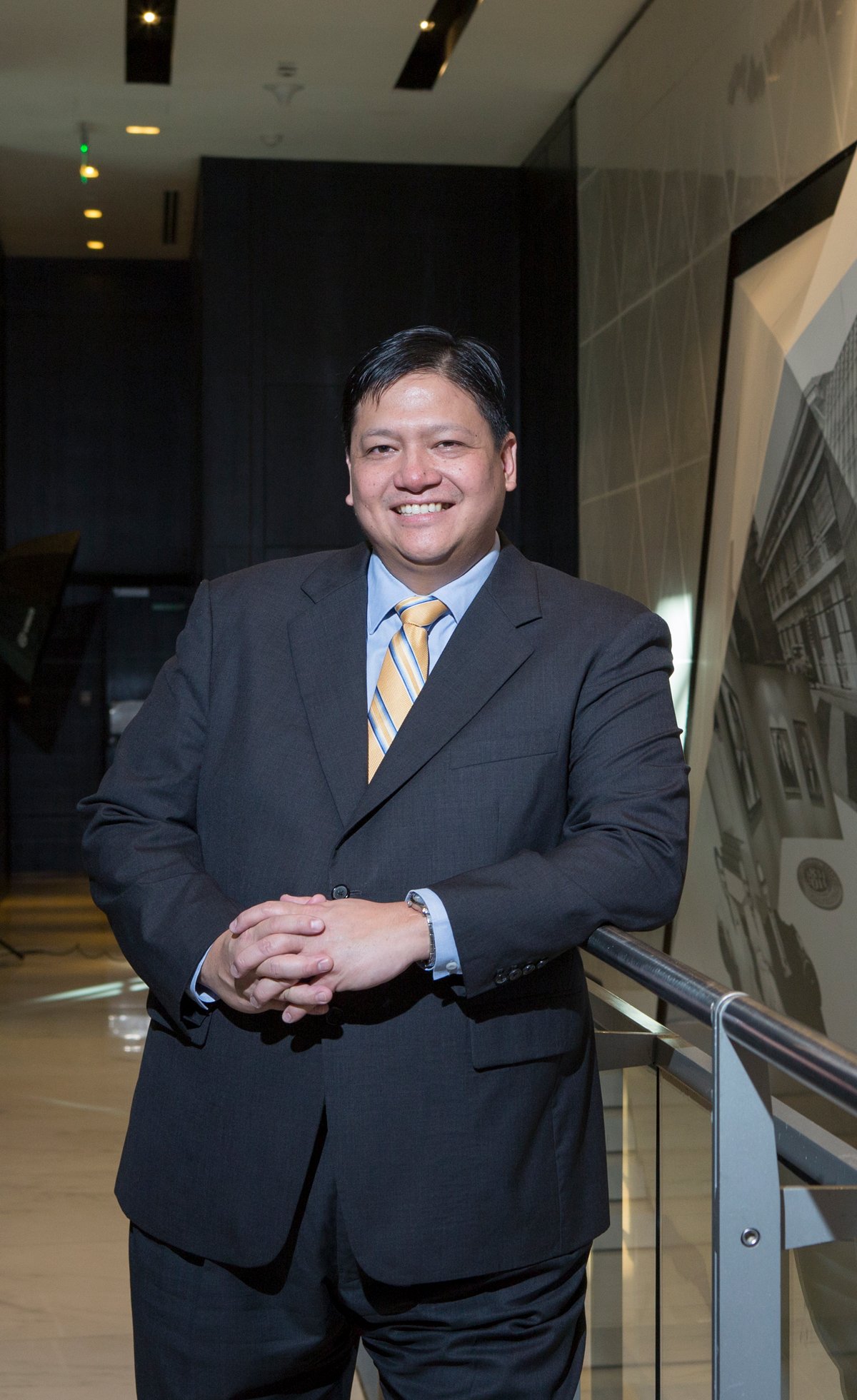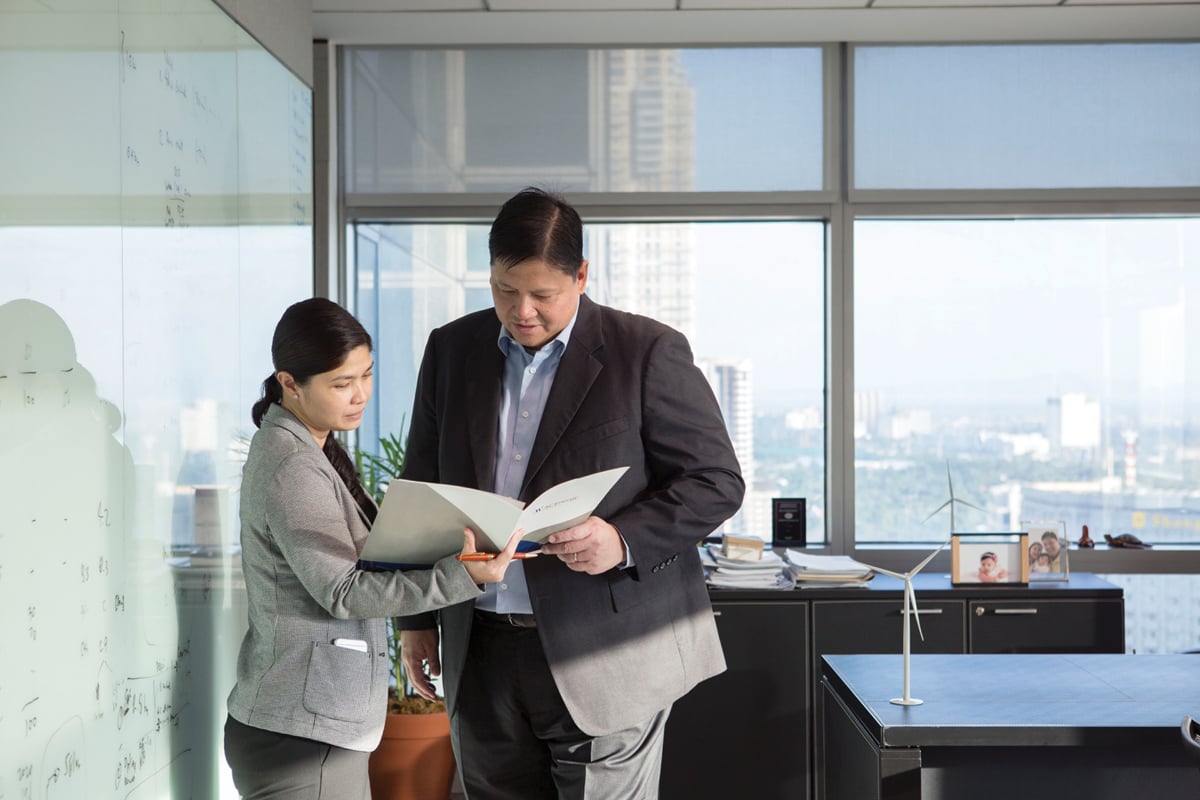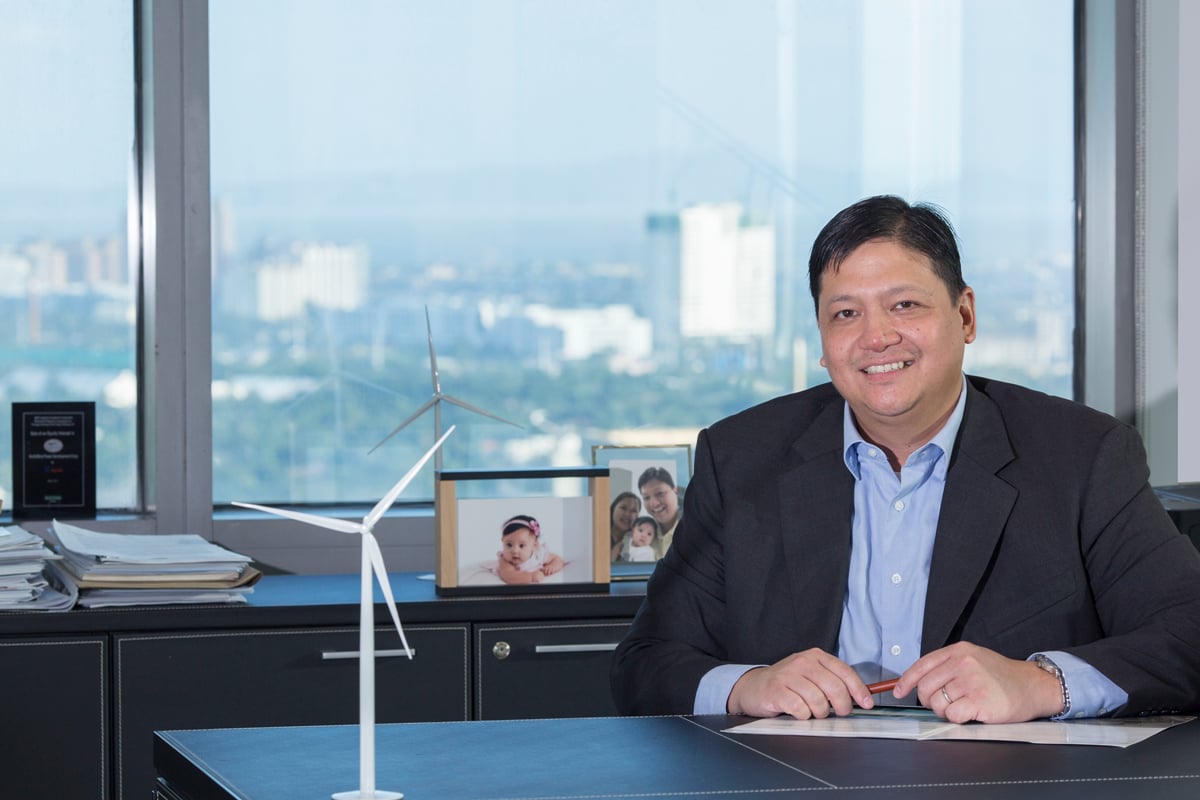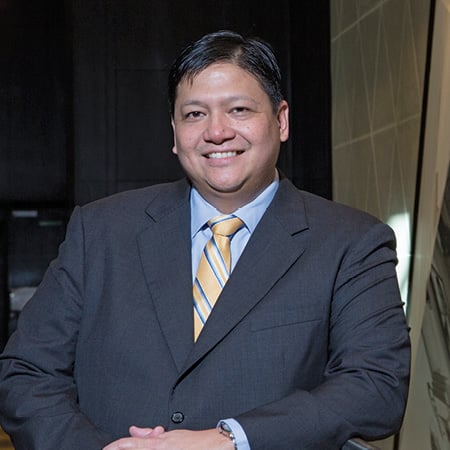AC Energy Holdings, the energy branch of leading Filipino conglomerate Ayala Corporation, is only 5 years young and yet it’s already achieved some key milestones for the region’s energy sector. Established in 2011 to address the country’s significant private infrastructure gap, the company has so far already exceeded its target to reach 1,000 megawatts of power production in 2016, and is set to rapidly procure more than 2,000 megawatts in the next 5 years.
Heading up AC Energy is current CEO John Eric T ‘Eric’ Francia, who has happily seen his role with Ayala cut down from 3 leadership roles to one in 2014. He was formerly also CEO for AC Infrastructure in its early stages, and served as the head of Ayala’s Corporate Strategy and Development Group, which has been responsible for overseeing Ayala’s portfolio strategy and new business development since 2009. As he has a little more free time in his day — though still quite a luxury — The CEO Magazine recently spoke with the expert multitasker to find out how he managed to lead the brand through impressive growth in such a short period.
The CEO Magazine: Tell us about your career before you joined Ayala Corporation in 2009?
Eric: Prior to joining Ayala, I spent around 15 years as a strategy consultant. For most of that time, I worked at Monitor Group, which was headquartered in Cambridge, Massachusetts, but I also worked across Asia. In my last 3 years with the company, I was part of the global management team based in the US headquarters.

“Ayala was perceived by the market as too conservative and I was met with questioning from investors and analysts around … what the ‘next big thing’ would be.” – John Eric T ‘Eric’ Francia
I’ve also spent a few years in academe, both as management and as faculty — education is very close to my heart. In fact, I’m still involved in education as a member of the Board of my alma mater here in the Philippines. I first joined Ayala as head of corporate strategy in early 2009. My wife and I decided to come back to the Philippines so I could take on the role, as I’d been living and travelling on the road for more than 10 years. Starting out in this role was a great way for me to transition from management consulting to the corporate world. At that time, we were just coming out of the global financial crisis, and it was an exciting time but also an uncertain time for a big conglomerate like Ayala.
During your time heading up Ayala’s corporate strategy, how did AC Energy come to be born?
One of the striking things I remember from when I joined Ayala was that, despite the crisis, we had a very strong balance sheet and were known for building businesses. But back then, Ayala was perceived by the market as too conservative and I was met with questioning from investors and analysts around how Ayala would respond to the market share erosion and competitive pressures, and what the ‘next big thing’ would be.
Basically, that was the segue into my new role. Around 2010 we decided that, given the changing economic and political landscape in the Philippines at the time, we would try to recognise and fill the gaps in the country, particularly around power and transport infrastructure.
So we threw our hat in the ring and we decided to enter those sectors in a big way. We established AC Energy and AC Infrastructure as the platforms for growth, and we committed US$1 billion of equity investments for 5 years.
We then set the goal of reaching 1,000 megawatts of attributable capacity for AC Energy, and for AC Infrastructure we aspired to be a leading player in the government’s Public–Private Partnership (PPP) program.

You’ve worked across multiple remits with Ayala during your time there. How did you come to have 3 roles?
With my initial corporate strategy role, I thought if I made great recommendations for strategies that would come to fruition, then Ayala’s Business Development group would take over and implement them, and I’d get a job in headquarters. I was dead wrong. Because of senior movements in 2010, the Business Development branch was folded into the Strategy group, so not only did we make the strategy recommendations but we also had to implement and secure the platforms (AC Energy and AC Infrastructure). But that was exciting, and the first year was quite successful. In 2011, we secured 3 of our projects. We won the first PPP project in the Aquino Administration, and then it left the question of who was going to lead these platforms now that we had them going with a good number of assets and an emerging organisation. Again, I thought I’d stay in corporate strategy and development, but I ended up having to lead both AC Energy and AC Infrastructure as CEO for both, so for the first few years of operations I had 3 jobs. As we grew, it wasn’t sustainable to have 3 jobs at the same time, so I got a successor to take the role of corporate strategy and development head in 2014, and then in 2016 I also passed the torch of AC Infrastructure to a colleague of mine, so now I’m AC Energy’s CEO full time.
How does it feel being able to focus on one-third of the business you were across before?
It’s great! I now have more time for my family. I have a 2 year old, and unfortunately I haven’t had much time to be with them because of all these exciting opportunities ahead, but I promised myself this isn’t an excuse, and being able to live a balanced life is certainly a key goal for me. I’m confident I’ll get there, and I’m glad I have a supportive and understanding wife. We also plan to move closer to my workplace. Right now it’s an hour commute in the Manila traffic, which will be cut down to 5 minutes when I move, so I am looking forward to that. It’ll also mean I have no excuse not to exercise more.
Having reached the end of your first 5-year strategy, what’s in store for AC Energy in the next 5 years?
Looking towards 2020, we do have even greater growth aspirations. We’re looking to double our capacity from 1,000 to 2,000 megawatts; there’s a big push to do more projects in the renewable energy space; and we’re seeking out more greenfield development that is organically generated and developed by AC Energy. First, though, we want to ensure that our projects currently under construction, along with recently launched operations, will perform at the highest level. There are also expansion opportunities in our existing assets and platforms: we now have 7 distinct assets with expansion potential, because we still expect the country’s electricity growth to increase. Second, we’re always keen to take on new strategic partnerships.

“I love the fact that we can improve the lives of people by providing more access to affordable energy, and it impacts on the environment as we push our agenda for more reliance on renewables.” – John Eric T ‘Eric’ Francia
Though we’ve leaned very much on our partners these past 5 years, we’d also like to grow to have that capability ourselves in house to carry out the brass-tacks development work: the permitting, the studies, the contract negotiations, and so on. Third, we’re looking to go international. In fact, we recently entered the Indonesian market through our participation in the winning consortium for the Chevron Geothermal bid. Immediately thereafter, we broke ground to start construction of a 75-megawatt wind farm, which is also the first commercial wind farm in Indonesia. Last, we’re also becoming a retail electricity supplier sector, given that the Philippines recently implemented the Open Access program, meaning large users can buy directly from suppliers like us.
On a more personal level, what do you love most about your job?
I think most of all it’s the tangible impact we have on national development. I love the fact that we can improve the lives of people by providing more access to affordable energy, and it impacts on the environment as we push our agenda for more reliance on renewables. It’s a great thing to be able to see the impact of your work on a larger scale. I also must say I’m very fortunate to be in such a great organisation with Ayala, I couldn’t ask for anything better in terms of a company to work with, and we have a great Board who are highly supportive, very motivational, and they give you all the support and resources you need to be successful. I also have a highly motivated and capable team; we have great camaraderie. As we’re growing into a larger group each year, I want to ensure we can maintain that sense of family.



